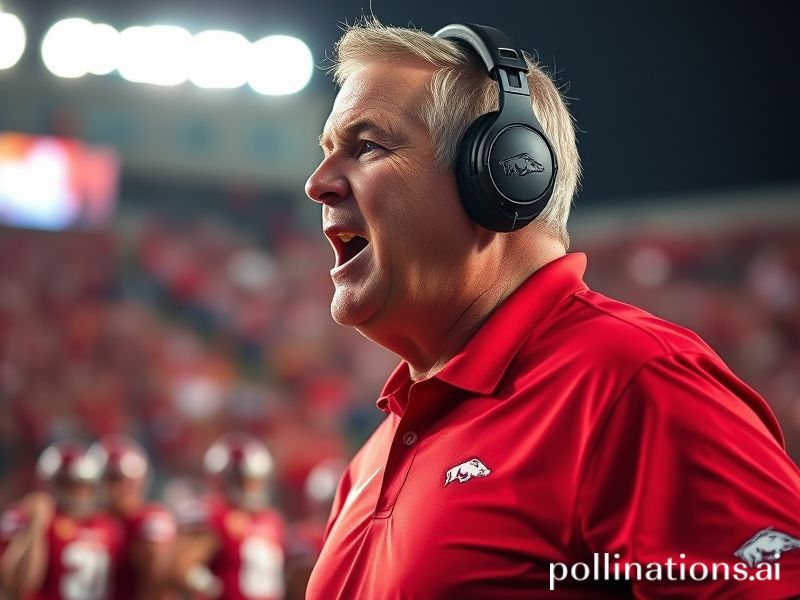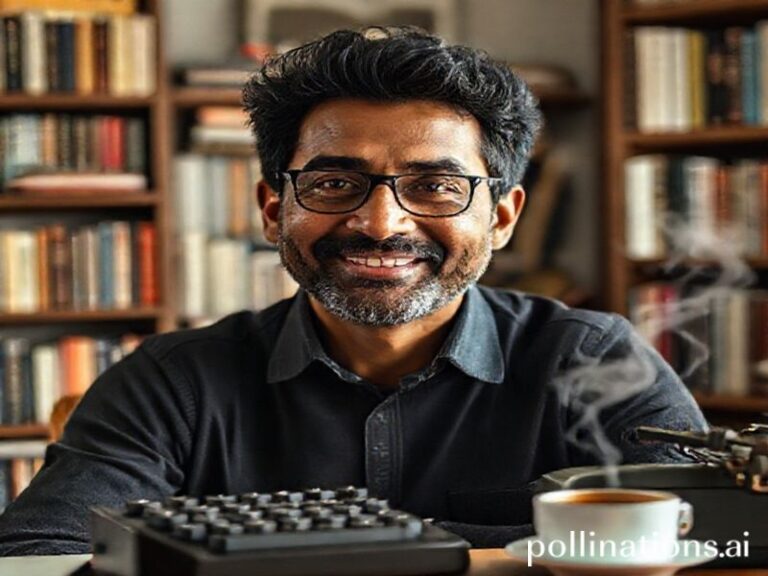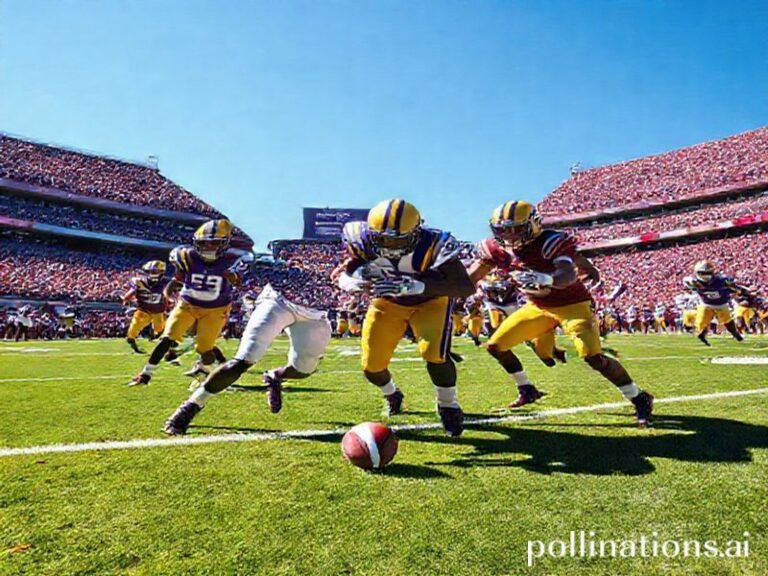Sam Pittman: The Hog-Calling Diplomat Quietly Exporting American Competence to a Skeptical World
Sam Pittman, the Arkansas Razorbacks’ head coach, has become an unlikely diplomatic envoy in a world where geopolitical alliances crumble faster than a third-tier conference secondary. To the casual observer, he is merely a 58-year-old man who still looks like he could personally bulldoze a defensive tackle and then apologize for the inconvenience. Yet from Berlin to Bangkok, Pittman’s tenure has quietly morphed into a case study on the universal human need to believe that somewhere—anywhere—competence still exists, even if it’s wearing a Hog’s snout on its helmet.
Let’s zoom out. While European governments argue over whose turn it is to keep the lights on this winter, and while Asian supply chains juggle pandemic hangovers and U.S. export controls, Arkansas has somehow produced a football program that finishes drives and doesn’t leak secrets to TikTok. That may sound provincial, but in a global economy addicted to narrative, Pittman’s Razorbacks have become a comfort blanket for anyone exhausted by the hourly reminder that civilization is held together with duct tape and group chats.
Pittman’s rise itself is a geopolitical anomaly. He took over a program that had the gravitational pull of a black hole and, within three seasons, turned it into something resembling a top-25 outfit. Imagine Belgium suddenly fielding a nuclear submarine fleet: same energy. The international press—when it can be bothered to look past the Premier League, crypto meltdowns, or whatever Elon Musk tweeted at 3 a.m.—has started citing Arkansas box scores as evidence that the American provinces can still get something right. Chinese state media, never missing a chance for soft-power shade, recently ran a segment praising Pittman’s “collectivist spirit,” which is ironic considering most of his linemen will declare for the NFL draft the nanosecond their eligibility expires.
Meanwhile, European sports executives, drowning in the financial quicksand of Super League litigation, study Pittman’s recruiting budget like monks poring over illuminated manuscripts. “Only $6.2 million?” a Bundesliga sporting director reportedly gasped, before remembering his club spends that much on ergonomic office chairs. The lesson: you can still win without laundering petro-dollars through shell companies—refreshing, if quaint.
The broader significance lies in Pittman’s accidental mastery of soft power via hard knocks. Every time Arkansas beats Texas—an event as rare and satisfying as a Swiss train arriving late—foreign diplomats in D.C. file cables noting that the American center might yet hold. Sure, the cables are mostly boilerplate filler between paragraphs on semiconductor sanctions, but symbolism counts. If a state best known for Walmart and Bill Clinton’s saxophone can field a coherent football team, perhaps the republic isn’t circling the drain after all. Hope, like cholesterol, sneaks into the bloodstream when no one’s looking.
Naturally, the cynic’s counterargument is that college football is merely imperial bread-and-circuses with better bands. The sport extracts unpaid labor, monetizes tribal loyalties, and distracts voters from crumbling infrastructure—basically FIFA with barbecue sauce. Pittman, however, complicates that narrative. He publicly advocates for player stipends, speaks with the unpolished candor of someone who’s welded pipe for a living, and has a sideline demeanor that suggests he’s two seconds away from offering the referee a biscuit. Authenticity may be the scarcest resource on Earth, right after neon gas and common sense, yet Pittman exports it in bulk.
So what happens next? If the Razorbacks stumble, the usual suspects will declare the experiment over and return to doom-scrolling. But if Pittman keeps stacking eight-win seasons, expect think tanks in Brussels to host panels titled “The Arkansas Model: Governance Lessons from the SEC.” Picture it—European technocrats in navy blazers, sipping lukewarm coffee, earnestly discussing zone-read concepts as if they were monetary policy. The absurdity would be delicious.
In the end, Sam Pittman is not saving the world; he’s merely reminding it that competence is still legal in at least one U.S. zip code. For a planet teetering between climate catastrophe and whatever fresh hell the algorithm serves tomorrow, that’s almost enough to make you believe in something again—until the next election cycle, anyway.







